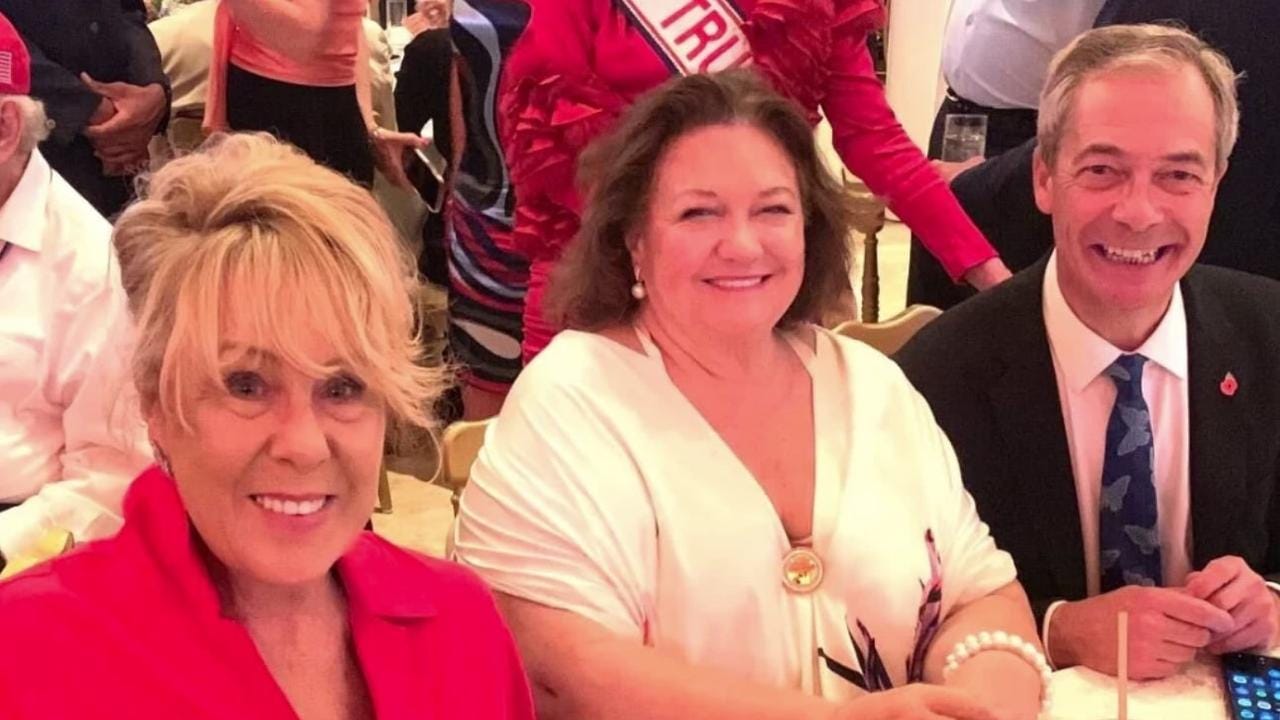Often when I’m trying to decide which way to go on a close call, I will choose the most optimistic option as a way of forcing myself to make a more positive argument. I don’t know if this a particularly wise way to approach life, or even politics, given the times we live in, but it does help create clarity, especially when the optimistic call turns out to be wrong. As it did with Kamala Harris.
Now that Trump has won and is arguably the most powerful person in human history—who would you put above him, I wonder, given what he presides over?—I’m still inclined to err on the side of optimism, though I will concede there is an edge of desperation in taking that position.
In The Shortest History of Democracy, John Keane writes that “Among the funniest jokes about democracy, said Hitler’s Reich Minister of Propaganda Joseph Goebbels, is that it gives its enemies the means to destroy it…”
The quote sounds made up—too good to be true—but Goebbel’s really did say it, and the full quote is, “This will always remain one of the best jokes of democracy, that it gave its deadly enemies the means by which it was destroyed.”
But, Keane continues, “Let’s take this fascist bad joke to heart.”
Although democracy has no built-in guarantees of survival, it has regularly been the midwife of political and social change. …Its birth implied something that continues to have a radical bite: that humans could invent institutions that allow them to decide, as equals, how they will live together on our planet. This may seem rather obvious, but think about its significance for a moment. The idea that breathing, blinking mortals could organise themselves into forums where they deliberate on matters of money, family, law and war as peers and decide on a course of action – democracy in this sense was a spine-tingling invention because it was in effect the first-ever malleable form of government.
Compared with political regimes such as tyranny and monarchy, whose legitimacy and durability depend upon fixed and frozen rules, democracy is exceptional in requiring people to see that everything is built on the shifting sands of time and place, and so, in order not to give themselves over to monarchs, emperors and despots, they need to live openly and flexibly. Democracy is the friend of contingency. With the help of measures such as freedom of public assembly, anti-corruption agencies and periodic elections, it promotes indeterminacy. It heightens people’s awareness that how matters are now is not necessarily how they will be in future. Democracy spreads doubts about talk of the ‘essence’ of things, inflexible habits and supposedly immutable arrangements. It encourages people to see that their worlds can be changed. Sometimes it sparks revolution.
Trump is now the democratically elected tyrant of Goebbels’ bad joke and we shouldn’t underestimate how awful things will get.1
The contingency and uncertainty that Keane says are embodied in the democratic ideal need to be managed in the interests of the many not the few. By the many not the few. The failure of the American political class to do that is why a majority have opted for the false certainty of Trump’s authoritarianism. They lost faith in their political class to govern in their interests and have thus looked elsewhere.
As I began pointing out in this article, many of the problems people blame on democracy are better blamed on the two-party system, an arrangement that forces us into false binaries rather than genuine deliberation. If the US electorate, like most of the world, feels the need to blame incumbents for what ails them, then you’d better give people something more than a tyrant as their only democratic alternative.
I don’t think Australia has descended into this level of failure, but ffs, let’s not get complacent. Democracy cannot survive the sort of inequality we increasingly take for granted and progressive politics needs to take that more seriously than it currently does. Housing, the cost of living, healthcare, aged care, education should be driving Labor politics at the moment, not stupid nonsense about forcing us all to prove our age online in pursuit of speculative goals of so-called online safety for children.
And in amongst this, let’s not kid ourselves that “the left” is losing because of identity politics. Donald Trump just won by running almost exclusively on identity and we need to recognise that identity is inseparable from class as a driver of political commitment. It can’t just be pushed aside in the name of a politics whose underpinnings are drastically changed from when class first became the centre of leftist organisation.
Anyway…
It is easy to find enemies at times like this, but what we really need to do is to recognise our friends and work in solidarity. In Australian politics, this means that Labor and the Greens—at all levels—need to call a truce and find an accommodation that serves mutual progressive interests. With voters bending over backwards to show politicians that they no longer trust the two-party system, and that they are willing to countenance the prospect of minority government, and where Australian voters have somehow, miraculously, conjured a crossbench that is heroically open to meaningful deliberation, legacy politicians need to listen and act.
Or be replaced.
In the lead up to the next election, Labor needs to recognise the gift the Australian people have given them and start working on creating an informal progressive alliance that serves to isolate the reactionary, authoritarian forces that are currently congealing under the leadership of Peter Dutton, his enablers and backers.2

We need to learn from what has just happened in the United States, and although I don’t want to go through all the alleged reasons Harris lost, I did just quickly want to address the role of the media. I notice a school of thought emerging since the election that says the journalists need to be careful to not see themselves as part of the resistance. The best discussion of this position is by Jon Allsop at the Columbia Journalism Review, where he collects the main examples and responds to them.
What I want to say to all those journalists self-righteously declaring that their professionalism—even now—demands a professional distancing from the reality that Trump’s victory means we all have to live in, is that they are being delusional and are still in denial about what is happening.
What makes me really sick about this not-wanting-to-be-part-of-the-resistance line of argument is that the same people who will hold themselves up as professionally objective will be hounding various insiders, from bureaucrats to disillusioned party insiders—all sorts of other individuals with access to information—to leak and otherwise share that information in order to feed their journalism. In other words, journalists will be demanding of others that they be part of the resistance, while the journalists themselves get to wash their hands of responsibility—don’t shoot the messenger!
It is a cowardly position to take at a time like this.3
I’ll finish with another quote from John Keane’s Shortest History of Democracy:
The democratic ideal is government of the humble, by the humble, for the humble. It means rule by people, whose sovereign power to decide things is not to be given over to imaginary gods, the stentorian voices of tradition, autocrats or experts, or simply forfeited to unthinking laziness, allowing others to decide matters of public importance.
Trumpism will fail, will end in defeat, and in the meantime our singular goal should be to bring about that failure as quickly as possible.
The editor of Jewish Currents summed it up nicely, pointing out that what has happened in Florida is about to happen across the US:
This past summer, Jewish Currents put out a whole issue about Florida, arguing that it provided a sneak peek at the particular brand of American autocracy we could expect from Trump-Vance et al. We dove deep into the attacks on education—from book banning in grade schools to efforts to dismantle higher ed—laying out how claims of antisemitism, and by extension Jews, have legitimized and provided cover for this nefarious campaign. Such efforts will now doubtless be fast-tracked nationwide. We explored DeSantis’s agenda in his own words, and outlined the ways that leaders like Trump are poised to run with his authoritarian playbook: packing positions of power with cronies, punishing enemies, and subverting democratic norms, while executing on an astounding anti-queer and -trans, anti-immigrant, anti-Black, anti-woman, anti-poor shock and awe campaign. Florida is everywhere, we declared, ever so slightly prematurely. And now, here it is.
I agree with John Quiggin that this will involve dumping Anthony Albanese.
I will do a longer piece on the role of media in this new environment, and I will draw on the history of journalism in Germany in the lead up to the Nazi ascension to power in 1933. If more journalists knew this history, they might think about things differently, especially resistance and objectivity.




Thanks Tim. I wish I could share your optimism. The question of whether Trumpism will fail, or not, no longer seems relevant. In ability to form and grow a movement, Trump has no peer. Certainly there's nothing on the left that looks anywhere near as coherent (!) as MAGA. Trump has been an outstanding figurehead for the MAGA movement to gain office. But for the billionaires standing just off-stage (except for Musk, who can't help himself), the main man now is Vance. He's the "Trump but smarter" VP who's wired into the hyper-connected global far right. He's to be the spearhead of Project 2025 that will flood the US public service with loyal foot soldiers ready to deliver on massive deregulation, paving the way for rampant, savage capitalism operating entirely without boundaries. The self-imagined AI super boys - Thiel, Musk, Altman, the Amodeis, Karp, et al - will run rampant, taking us to their brave new singularity. My bet is that Trump will be out of office long before the next presidential election in 2028. By then, Vance will have invoked section 4 of the 25th Amendment and had Trump removed for (already obvious) incapacity and installed himself as president, at which point US democracy dies at the hands of Musk, Thiel, Bezos et al. I know it's a complex task to get rid of a sitting president, with 2/3 of Congress having to approve if the president objects. But there'll be ways of handling Trump. Hundreds of millions of dollars - if not billions - are being spent on achieving a vision of the US as an oligarchs’ paradise. We are seeing the machinery in motion.
Tim, one thing about our system that worries me, is it not dependent on those contesting elections, and those in Gov following the conventions, could it not all fall apart if we had participants that chose to ignore them?
What bugs me most about the outcome is the delusion of those who voted for Trump, people running around chanting “Jesus, Jesus….”, “God save America” and all this sort of crud. I don’t know why I’m evening saying this, it’s not news to me and is just further confirmation of the past 40 yrs that most religious Americans are hypocrites.
Btw, is there such a beast as a humble politician?